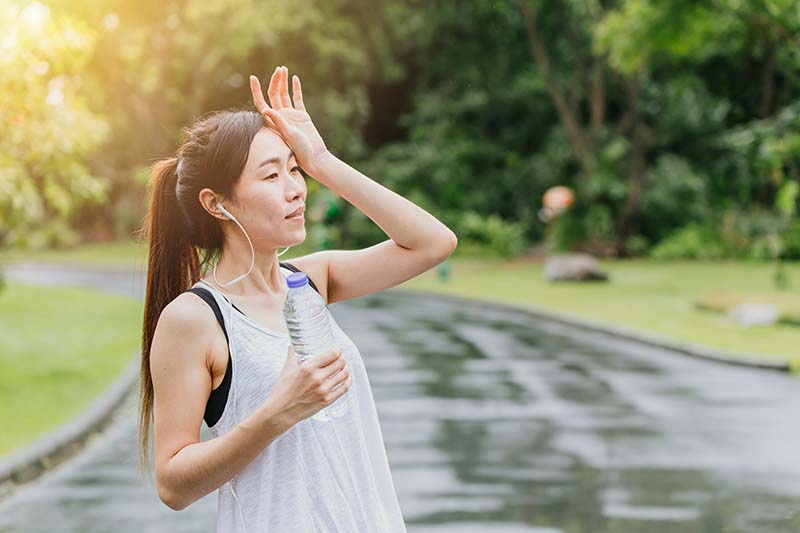
Health & Science
Protecting Your Health During Hot Weather
June 14 2023
Weather in Houston is already hot, and forecasted to get hotter! The best defense against heat-related illness is prevention! Heat-related illnesses, such as heat stroke, heat exhaustion, heat cramps, sunburn, and heat rash, occur when your body is unable to properly cool itself under stressful heat. Although anyone can suffer from heat-related illness, some people are at greater risk than others, such as:
-
Infants and children up to age 4
- People age 65 or older
- People who are overweight
- People who over-exercise
- People who work outdoors
- People who are physically ill, especially with heart disease or high blood pressure, or who take certain medications, such as for depression, insomnia, or poor circulation
Learning the warning signs of heat-related illnesses such as heatstroke and heat exhaustion is critical because very high body temperature (above 103°F) can damage the brain or other vital organs. If you or a loved one experiences the following symptoms, seek medical attention immediately:
-
Heat exhaustion: muscle cramps; headache; heavy sweating; tiredness; dizziness; nausea or vomiting; weak or rapid pulse; paleness.
- Heat stroke: hot, dry, red skin; no sweating; dilated pupils; loss of consciousness; nausea; very high temperature (above 103°F); rapid heartbeat; confusion; throbbing headache and dizziness.
Cool spaces and staying hydrated are the number one defense against heat-related illnesses and death. If air conditioning is not available, pull the shades over windows, close the blinds and use fans to cool rooms. If you have a box fan, place it next to a window and open another window on the opposite side of the room to create a cross breeze. Staying cool and drinking water are the best ways to prevent heat stroke and heat exhaustion. To avoid heat-related illnesses, during hot weather:
-
Drink a lot of water (even when you are not thirsty). By the time you realize you are thirsty, your body’s water supply is already lower than it should be. Drinking sports drinks can replace the salt and potassium that may be lost by sweating. Note: If you are on a low-salt diet, talk with your doctor before drinking sports beverages.
- At the first signs of heat illness, get out of the sun or your body temperature will continue to rise.
- Do not drink alcohol and avoid drinks with caffeine.
- Limit outdoor exercise and outdoor work, if possible.
- If you must go outside, try to do so either in the morning or in the evening. While outside, take frequent breaks and find air-conditioned places or shady areas. This will give your body a chance to recover.
- Check on the elderly and those individuals at high risk for heat-related illnesses.
- Wear light, loose-fitting clothing and a hat with vents such as straw hats.
- Take cool showers to cool off.
- If your heart begins to pound, if you become lightheaded, confused, weak or faint, stop all activity and seek immediate medical assistance.
- Pets can also suffer from excessive heat. Make sure your pets have adequate drinking water and a shady place to rest.
- Never leave children, the elderly, or pets unattended in a vehicle, even if the windows are cracked open.
To learn more about heat-related tips, illnesses, warning signs, and tips for staying healthy, visit readyharris.org or cdc.gov.
Source: Harris County Public Health



